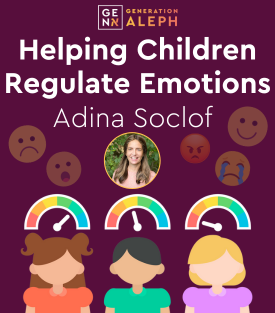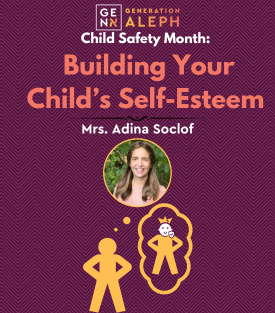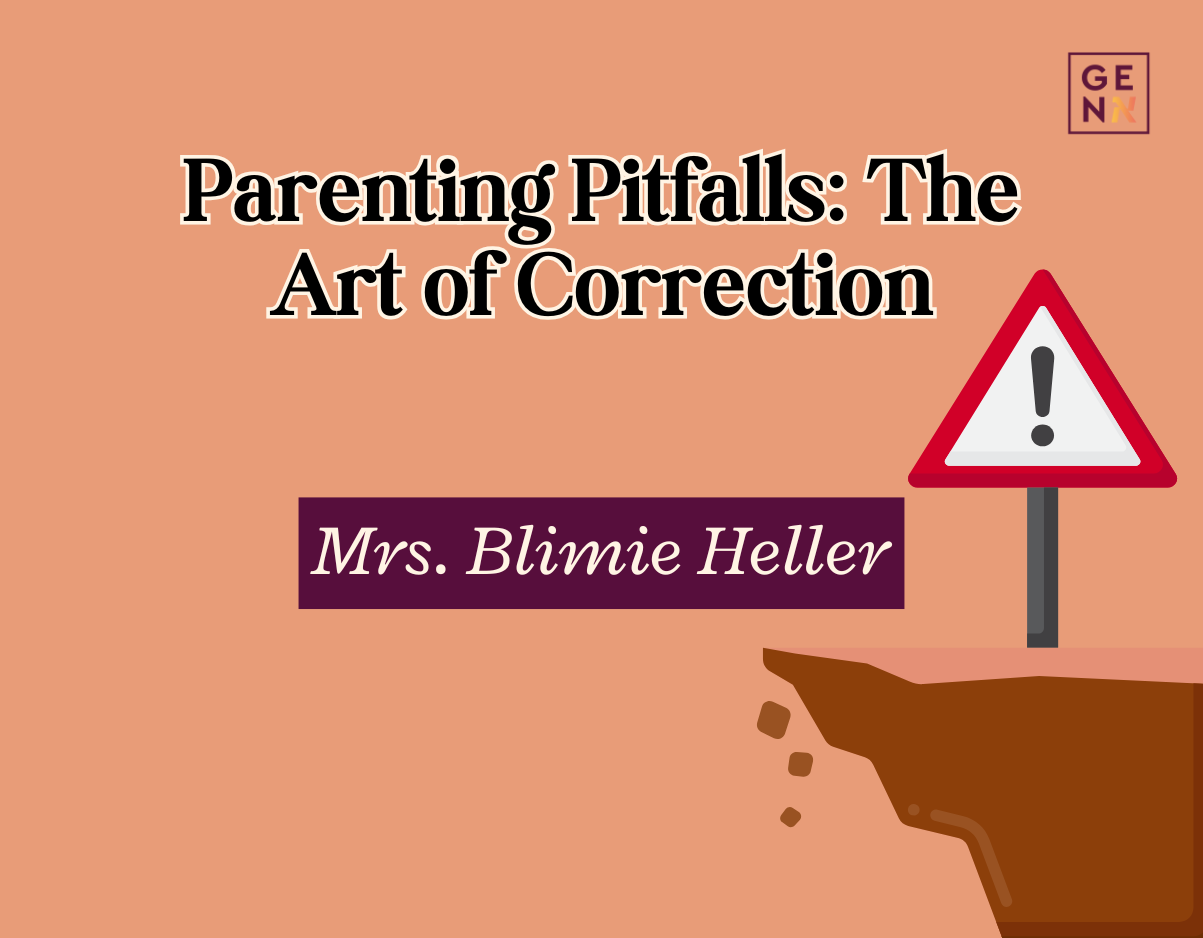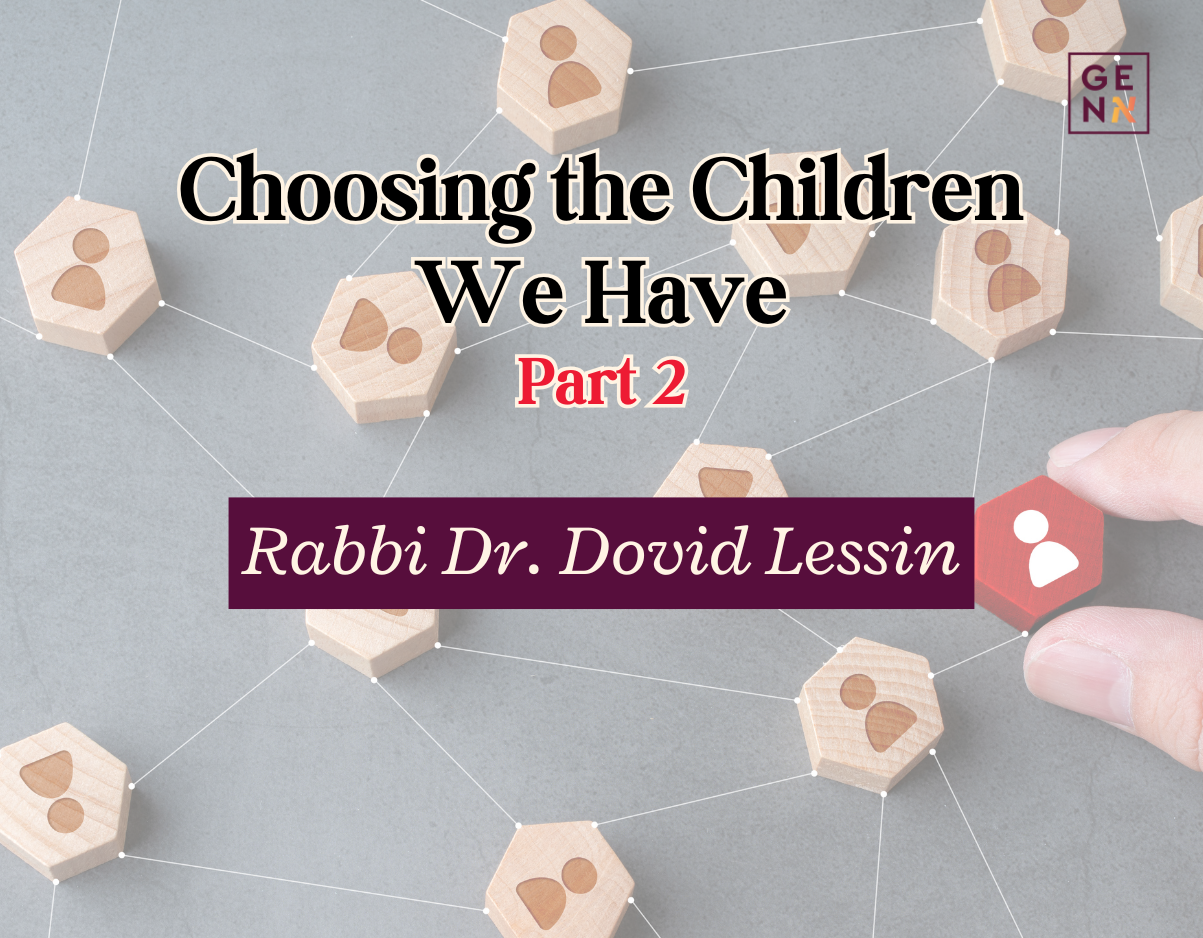Parenting is a lonely job. It can bring up deep feelings of helplessness, powerlessness and unworthiness. We don’t talk about this enough and when we don’t talk about our shame, we give it more power over our lives. Mold grows in the dark. When we shine a light on our stories, when we share courageously with others, shame has no space to survive.
I have been a parent for over 20 years. I have five daughters and one son. At one point four of those daughters were teenagers at the same time. Baruch Hashem I have been through the ringer (thank you for your thoughts and prayers). Here is what I have learned so far. There is no such thing as a perfect parent. The perfect child is a myth. The perfect family is a mirage. I know this may not appear to be true at first glance but I urge you to remember that we are living in a world of curated social media content. You are only seeing what they want you to see. There is no recipe to follow for raising children, no equation to work out. We cannot get this “right”. It is perfectly normal to feel worried, confused, angry, guilty, overwhelmed and inadequate. This is all part of being a parent.
It is common for children to have opposing needs. At once they may need to be held and challenged. Loved and disciplined. As Chazal put it, “One should always push away with the left hand and draw closer with the right hand.” If you don’t know what to do, how softly to push away or how intensely to draw close, welcome to the club. We are all just doing our best to make the next right choice. If you feel like you lack the knowledge or the resources to parent your children, know that you are not alone.
“I think my daughter hates me.”
“She doesn’t mean it.”
“She does. She literally just went off on me for the last half an hour. How I have never done anything for her. How everything I have done is wrong. How I just don’t get her. I don’t get it, I have literally done everything for this kid!”
Parenting is hard enough, but when our own children, the people we have dedicated our lives to, criticize us as only children can (and especially teens!) it cuts to the core. We are only human and there are times that parenting can bring up deep feelings of exhaustion, inadequacy and unworthiness. If you have ever said the words “I am just done” you are part of the tribe. Gentle reminder that you are worthy of love in this role. A child who can only see the negative in their parents is protecting themselves. It does not reflect reality. It is not even a reflection of their full experience. The child who challenges us may trigger deep feelings of unworthiness but we cannot parent from that place.
When we combine these factors – the fact that other families look they have it all figured out, that we don’t necessarily know what parenting strategies we ought to be employing, the fact that we may be feeling as if we living in a sea of negativity and the waves of criticism we face seem to be relentless, it is totally understandable that parenting can sometimes feel beyond overwhelming. So what’s the move? Our children don’t need us to get it “right.” In fact, the research indicates that our imperfections as parents help our children learn that life is a series of ups and downs and that they, like us, can manage the vicissitudes of life. In other words, the attempt to be a perfect parent in and of itself is a failed parenting strategy.
It seems to me that parenting is at least as much about parenting ourselves as it is about parenting our children. As long as we are doing our best to show up in self (a sometimes formidable task) we will be enough for our children. What does this mean?
- Showing up as a person who can build a healthy attachment with our children. Most of parenting is having a strong relationship with our children. When we are in-self, it creates space for a meaningful relationship to flourish. We can’t control the way our child shows up, but we can control the way we show up which will strongly influence our child.
- Being mindful of our own childhood wounds so that we don’t imitate the mistakes of our own parents or overcompensate because of them. Without paying attention to where we came from we can inadvertently parent from parts of ourselves that are deeply protective. If we are aware of our wounds we can break the cycle of parenting that may have been handed down to us.
- Staying emotionally regulated under trying circumstances. If our child is throwing a temper tantrum we can respond rather than react. Of course, it goes without saying that if we are not taking care of ourselves, our capacity to make good parenting decisions will be somewhat mitigated.
- All relationships involve rupture and repair and we can stay in repair. As John Gottman put it, “The difference between master and disaster couples is how they repair.” It is normal for a parent child relationship to require attunement. Repair is not only for our missteps, it is about ensuring that the relationship is aligned. Relationships are flexible but we need to stay in repair to ensure their integrity. And, when done right, we can actually teach our children that in a healthy relationship we grow closer from the distance.
Submit your questions
"*" indicates required fields











